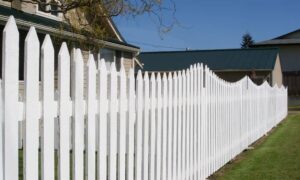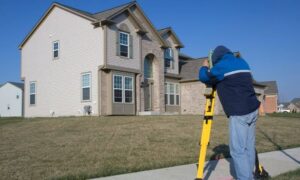
Property disputes between neighbors can lead to costly legal battles and construction headaches. One smart way to avoid these issues? A property line survey. This simple yet powerful tool ensures you know exactly where your land begins and ends, saving you time, money, and stress.
The Risks of Not Having a Property Line Survey
A. Property Disputes
Without a property line survey, misunderstandings with neighbors are more likely. Imagine a neighbor accidentally building a fence, shed, or driveway on part of your land—this can easily lead to tension or legal conflict. A property line survey helps you avoid such problems by clearly defining your property’s boundaries.
B. Legal Consequences
Disputes over land boundaries can escalate into lawsuits, fines, or stop-work orders. A property line survey provides legally recognized documentation of your property’s dimensions, which protects you in court and ensures compliance with local regulations.
The Importance of Accurate Property Line Surveys
A. Miami’s Unique Landscape
Miami’s terrain includes coastal areas, flood zones, and variable soil conditions—all of which can complicate boundary lines. Property line surveys in such regions must account for environmental challenges, ensuring accuracy even in dynamic or flood-prone areas.
B. Construction and Renovation Projects
If you’re planning to build a fence, add a driveway, or undertake a home renovation, knowing where your property line lies is critical. Without that knowledge, you could accidentally build on your neighbor’s land, leading to legal complications or forced demolition.
Before starting any project, it’s essential to understand the construction survey requirements in your area. A property line survey ensures that all new additions—whether fences, sheds, or home extensions—stay within legal boundaries, comply with local regulations, and avoid future disputes.
C. Boundary Markers
Surveys place physical markers (like stakes or flags) to identify exact property lines. These markers prevent misunderstandings and clearly show where your property ends—crucial for both current and future neighbors.
How Property Line Surveys Can Save You Money
A. Preventing Costly Legal Battles
Though a property line survey costs between $300 and $800, it’s a fraction of what a boundary dispute lawsuit might cost. It helps settle questions before they become conflicts, offering long-term financial peace of mind.
B. Avoiding Expensive Property Errors
Mistakes like building a garage in the wrong spot or purchasing part of a neighbor’s land can be expensive to fix. A property line survey ensures everything—from fencing to landscaping—is placed properly, avoiding do-overs and demolition.
How to Choose the Right Surveyor
A. Qualifications to Look For
Always choose a licensed and certified surveyor. They should be experienced in residential property surveys and understand your local laws. Ask for references and check reviews to ensure reliability.
B. Local Expertise
Look for surveyors with specific knowledge of your area. In places like Miami, understanding local zoning codes, flood regulations, and soil variations is essential for an accurate property line survey.
C. Costs and Budgeting
Property line surveys usually range between $300 and $800, depending on your lot’s size and complexity. It’s worth comparing quotes and services offered to ensure you get value for your money.
Final Thoughts
Getting a property line survey might not be at the top of every homeowner’s list—but it should be. It gives you legal protection, peace of mind, and the confidence to renovate, sell, or build without second-guessing boundaries. Whether you’re buying new land, planning a renovation, or just want clarity on your property lines, a survey is a smart, proactive choice.
FAQ: Property Line Surveys
Q1: How long does a property line survey take?
A: Most surveys are completed within a few days to a week, depending on property size and surveyor availability.
Q2: Can I use old property survey documents?
A: Older surveys may not reflect current boundaries or construction. A fresh survey is always best before major property decisions.
Q3: Do I need a property survey to sell my home?
A: It’s not always legally required, but buyers often request one. Having it ready can speed up the process.
Q4: Are property surveys legally binding?
A: Yes, surveys done by a licensed surveyor are recognized in legal disputes and real estate transactions.
Q5: What happens if my neighbor disagrees with the survey?
A: A professional survey serves as legal evidence. If disputes persist, the survey supports your claim in court.
Q6: Can a property line survey help with fencing?
A: Absolutely. It ensures that any fencing you install is within your boundary lines, avoiding neighbor disputes.





